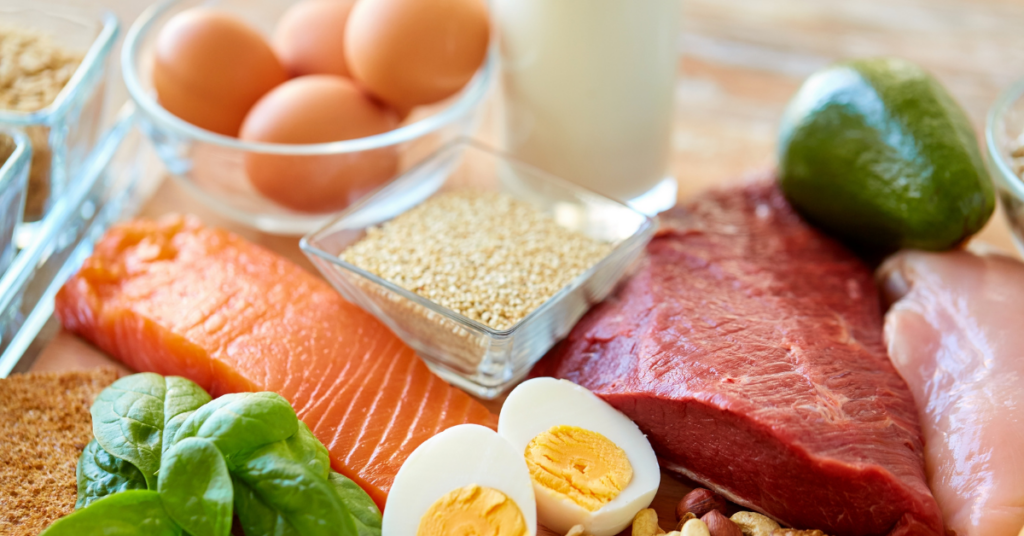Maintenance After Fat Loss – the Missing Piece to Success
Progress is much like a journey – and every journey requires some pitstops. Whether we are gassing up, patching tires, or grabbing a bite to eat – periodic maintenance keeps our engine running, our wheels bolted tight, and our brains functioning. But what if you don’t want to take time to pull over during this trek? You may spend more time addressing the costs incurred along the way. In this blog, Stronger U’s Registered Dietitian, Sam Walker, discusses the importance of maintenance, as well as how it can increase the efficiency and effectiveness of your nutrition-related goals – the implications, considerations, in addition to tips on making the most of your maintenance breaks to refuel, reinvigorate, and hit your goals even harder.
Introduction
To preface the concept of maintaining, let’s all be honest: The term alone makes us feel like we are not making progress or stagnating. “If my goal is to stay the same, where does my motivation come from?” When consistently focusing on altering our body composition, be that fat loss, gaining muscle, etc., we have an outcome goal to tell us, “I am working toward progression.” Without that, we can feel that staying put is to give up progress.
What if taking time to focus on maintenance is a form of progress? Or better yet, what if we switch our mindset to recognize that maintenance is actually the goal.
Why we should limit the length of the fat loss phase
Everyone has different “ideal” lengths of time for being on a low-calorie plan for fat loss. It’s not healthy to be on a low-calorie plan forever. Most people do best with an approach that includes a committed, limited period (roughly 8-16 weeks is best for most) followed by a more extended period of “maintenance.” What benefits do we see with this approach? Among the most qualifying reasons for entering a maintenance phase is to reduce the psychological or mental “burnout” that we can see with long-term energy restriction. Eating low-calorie contributes to low energy levels, making us irritable and lethargic. Extended periods of hunger can make it more challenging than usual to withstand food temptations that we’d otherwise be able to pass by. All these feelings together can transcend into subsequent feelings of guilt and loss of motivation, culminating in negative thoughts towards your fat loss attempts. If you keep pushing to lose more fat without taking a break, you can end up mentally fried and dreading the entire fat-loss process.
Beyond the impact extended time spent on a low-calorie diet has on your mental well-being and motivation, additional metabolic factors should be considered when making a long-term fat loss or body comp change plan. Most notable is that an extended low-calorie intake can impact our basal metabolic rate (BMR). BMR is the amount of energy needed to support the functions required for our bodies to stay alive and thrive (things such as breathing and our heart beating require energy). BMR drives most of our overall caloric needs. Longer periods of energy-restricted eating can decrease our BMR. For one, when we lose weight, we have smaller bodies, which means we need less energy to support our smaller bodies. Additionally, some research has shown that our bodies may down-regulate metabolism slightly through decreasing energy utilization of specific biological processes when we are on a long-term energy-restricted plan. However, research on this subject is mixed, and it’s difficult to quantify the true impact of these metabolic changes. The amount of change in our BMR is variable across individuals and likely only impactful in people who have lost a significant amount of weight.
One factor that has a much more significant impact on energy expenditure during the fat loss phase is the amount we move our bodies daily (both consciously and subconsciously). Fatigue builds the longer we sustain an energy deficit; when you feel tired, you move less! What’s even more interesting is that research shows that people choose to exercise less and conserve energy without even knowing it! Without even realizing it, we tend to fidget less, act less animated in our daily interactions, and move less; we may park closer to our destination or take the elevator over the stairs – all things that may be harder to identify yet contribute to an overall decrease in our energy expenditure throughout the day. You may also find that you have less energy for workouts and put in less effort at the gym, which puts you at a higher risk of dropping muscle instead of body fat.
With all of this in mind, we want to be in an energy-restricted plan for only as long as necessary. This means we should always have the mindset that eating more calories at a level that has us maintain our weight should always be the intermediate and end goal.
What maintenance looks like
Now that we’re all convinced that we shouldn’t have a goal to lose fat forever, what does the stage after fat loss actually look like?
In some ways, maintenance will look very similar to the fat loss phase you were just following. Maintenance does not mark the “end” of our work with nutrition and ourselves. You will likely want to continue many of the same habits, such as high-protein meals, filling your plates with veggies and fruits, drinking plenty of water, keeping your body moving, and lifting weights regularly. What is different about maintenance is you get to add a bit more flexibility to your eating! You get to add more calories by eating more food overall and fitting a few more snacks and treats.
This sounds like a lot of fun, right? I think so, too, but you would be surprised to know that this can be a time that people really struggle with! After being focused on fat loss for so long, there’s a required mindset shift to allow you to accept that you can and should eat more food! Because this time period can be so challenging, it’s often more difficult to maintain your progress than it was to make it there; working with a coach during this time can be very helpful!
Here are some of the steps you’ll want to take for moving into maintenance:
- First, you’ll want to adjust your calorie intake to support your needs for maintenance. That means eating more! Generally, adding about 100-200 calories per day for one week is helpful; if you’re still losing weight, bump it up again with another 100-200 calories the following week. Repeat this process until you start to maintain your current body composition and weight.
- You will keep your daily protein intake at a minimum of 0.7 grams/lb per day). You want to maintain your muscle (or even consider setting a goal to gain more muscle!)
- Carbohydrates and dietary fat are likely where you’ll get your additional calories from – you can do some trials yourself to see what feels good or work with a coach can help individuals appropriate specific macronutrient distributions to find ideal ratios to support training needs, food preferences, and overall variations in appetite.
- While you have more wiggle room, it’s best to start the introduction to your maintenance phase by increasing the amount of the foods you consume and keeping them similar to what you were eating during the fat-loss phase. Adding in lots of new tasty foods can make controlling appetite more difficult. Once you’ve been in maintenance for a bit and if hunger is well controlled, you can add more splurge-type foods.
- Maintain activity levels into this transition – keep getting your steps in, and keep lifting those weights!
If you have been weighing yourself while trying to lose body fat, you may notice some changes on the scale when you first transition to maintenance. I typically see bodies respond in 2 different ways;
- It’s common to see a slight increase on the scale as soon as you start eating more food. This increase is not, however, due to an immediate increase in body fat. Instead, scale weight may be up due to increased intestinal contents (you are eating more food now!), and you begin storing more energy as glycogen in the liver and skeletal muscle tissue since you are eating more energy.
- You may see your weight on the scale go down a bit. This is the least common, but some members start moving more once they have more energy from the extra food. If someone has been in a calorie deficit for a long time, their bodies may have been in a long-term period of stress with higher cortisol levels. When they add more food, the stress response can be reduced, sometimes resulting in less fluid retention and a lower weight on the scale.
As you can see, these changes are not a cause for concern. None of these should be assumed to equal a change in “net” body tissue – most of these changes are due to changes in total body water. Eventually, these short-term changes will level off. However, daily variations in body water levels should still be expected. A common misconception about “maintenance” is maintaining a singular body weight. Shifts in body water can (on average) amount to a 2% deviation (up/down) in body weight – thus translating on the scale. We must constantly remind ourselves that scale weight does not equate to body fat!
Another benefit to working with a coach during this time is that they can talk you down from pressing the “panic button” and jumping back into fat loss for fear of scale increases! Maintenance is an integral phase of your overall nutrition program on your way to your long-term goals; you shouldn’t skip or rush it. Take your time and enjoy the extra food.
A Stronger U Coach can provide personalized guidance based on your specific goals and preferences, fine-tuning your nutrition intake. This tailored approach helps ensure your maintenance plan aligns with your needs and lifestyle. Additionally, their expert accountability can support your long-term success. To learn more about what it’s like to be a Stronger U member, schedule a free consultation with a Coach Concierge to hear the program’s benefits and get matched with a coach.








